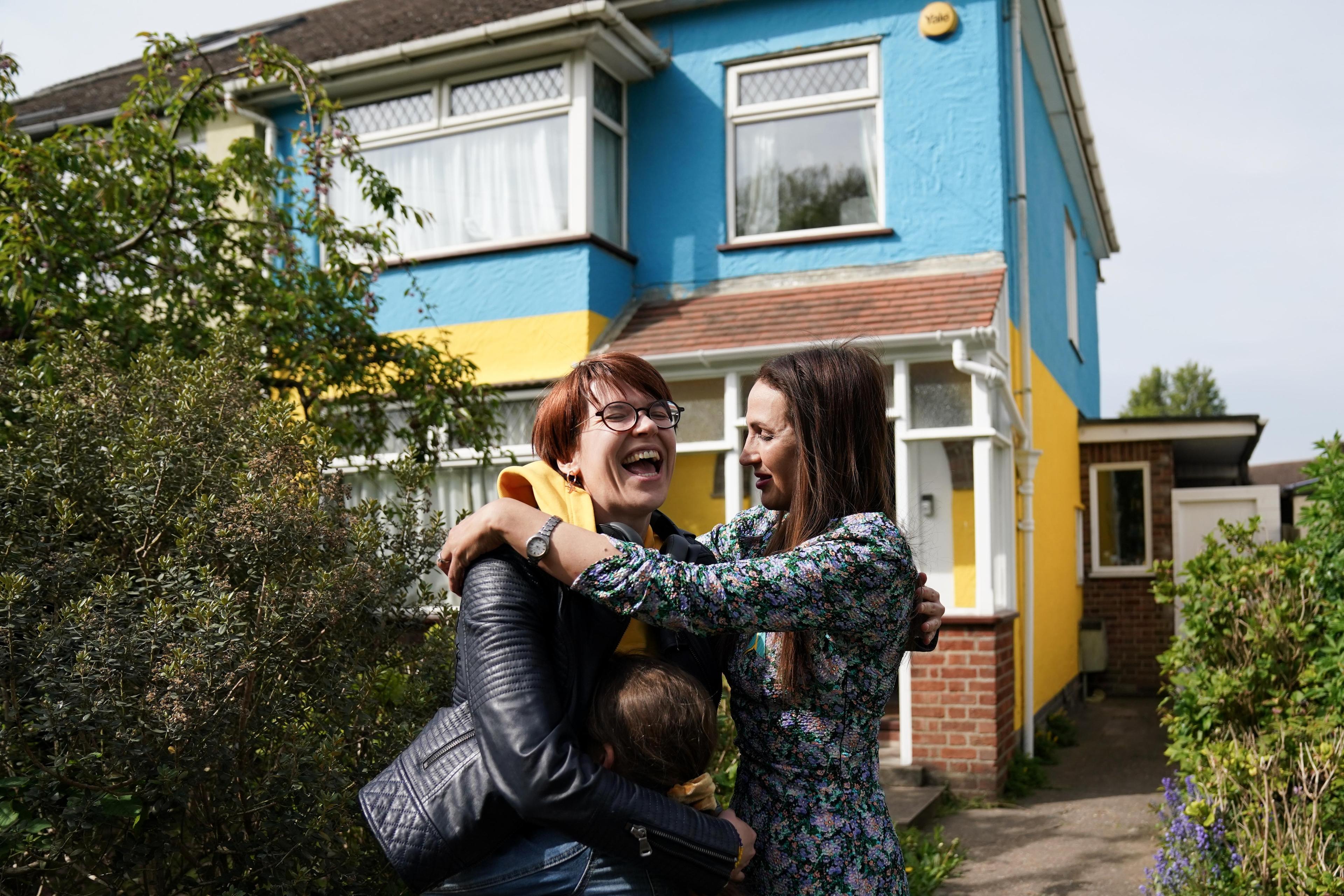Human behaviour is at the heart of the climate crisis. Never before has changing this behaviour been quite so important. Drastic reductions in the release of greenhouse gas (GHG) emissions within the next decade is essential. This will require behaviour change within governments, organisations, communities and individuals to transform our existing patterns of production and consumption. Given the scale of the collective changes required, it can be tempting to believe that our own individual choices and behaviours will make a negligible difference. In fact, changes in personal choice behaviours can accumulate to have sizeable beneficial consequences for the climate, especially from the majority of us who lead carbon-intensive lifestyles. This raises the question – how can we harness psychology to change our own behaviour and help others do the same?
The first step is to focus on changing behaviours that have the highest impact. If we narrow our attention to individual actions, those that can most substantially decrease a person’s annual carbon footprint include following a plant-based diet (saves 0.8 tonnes of CO2-equivalents per year), reducing air travel (each return transatlantic flight avoided saves 1.6 tonnes), living car-free (saves 2.4 tonnes) and having smaller families (saves 58.6 tonnes per child). Switching to a green energy supplier and home insulation can also have a modest influence. For a sense of perspective, consider that if everyone in the UK were to switch just one beef or lamb meal a week to a plant-based option, this would result in an 8 per cent reduction in domestic GHG emissions.
Of course, knowing the most impactful personal changes is only part of the story. The next step is to carry them out. From years of unkept new year’s resolutions or diets that haven’t quite gone to plan, we can all appreciate that acting on even the best intentions is not easy. In psychology, this conundrum is referred to as the value-action gap. It refers to the phenomenon whereby our actions do not necessarily correlate with our attitudes (eg, a person might have a positive attitude toward protecting the environment, and yet not be doing anything about it). Much research in promoting pro-environmental behaviour has gone into trying to shift values through increased education and awareness. These interventions inform people about the dangers or costs of a given behaviour, similar to the information I presented above about the impact of different lifestyle choices. Unfortunately, because of the value-action gap, this type of information alone has been largely unsuccessful at convincing individuals to actually change their behaviour. To reduce the gap, we must delve deeper into the root causes of human behaviour.
As social animals, one of our strongest sources of motivation is the people around us. This has been best demonstrated by work examining eating behaviours, which has found that a person’s chance of becoming obese increases by 57 per cent following one of their friends becoming obese. These ‘social contagion’ effects occur because our social worlds create norms or standards that guide our own behaviour. We can leverage these social influences on people’s motivation to help implement long-lasting pro-environmental behaviour change. One way of doing this is through public commitments or ‘pledges’ to undertake a certain behaviour. A popular example is Veganuary where individuals pledge to eat vegan food for the first month of the year. Pledges work best when they are active: ie, when they require a positive action, such as a written statement, and when they are made to people with whom we identify most, known as our ingroup. So, if you would like to try switching to a plant-based diet, why not consider the Veganuary workplace pledge (or a similar initiative involving a public commitment), where you, alongside your office mates, take up the challenge of a meat-free January; even better, why not share your intentions on social media?
Yet, there is often more to behaviour change than increasing motivation. As laid out in a leading theory called the COM-B model of behaviour change, motivation on its own is not enough – rather, to adopt a new behaviour successfully, an individual also requires capacity and opportunity. Here ‘capacity’ refers to the knowledge and skills needed to support a new course of action. For example, in the case of being able to live car-free, this might mean having the ability to confidently ride a bicycle. Meanwhile, ‘opportunity’ relates to the external factors (often beyond a person’s control) that make execution possible. For example, in deciding whether to avoid flying to a holiday destination, opportunity factors would relate to the time and cost constraints of alternative travel options, such as taking the train.
So, if you are determined to make more pro-environmental choices, consider whether there is anything you could learn to help make these changes. Do you need to improve your vegetarian cooking skills, or learn new walking and cycling routes for journeys you commonly take? If you are a manager or run an organisation, you might wish to think through the ways you can increase the opportunity your members have to act pro-environmentally. This could include ensuring there are accessible showers at work for cyclists, and bicycle racks to allow safe storage. Can you organise international meetings via Zoom to help reduce unnecessary air travel? Thinking through the practicalities and gaining new skills that make pro-environmental behaviours possible is as important as the effort one is willing to put in.
A further factor to consider in helping individuals change their lifestyle choices is whether certain often-repeated behaviours have become habitual. Habits are like operating on autopilot – they depend on a fast, intuitive mode of decision-making that is largely unconscious and triggered automatically by particular cues (eg, feelings of hunger on the commute home might trigger the habitual decision to stop for a burger). Behaviour change techniques called nudges can be effectively used to disrupt the environmental cues that give rise to this type of routine behaviour. In the example above, you could consider taking a different route home that avoids passing by a fast-food outlet.
Nudges have been shown to be particularly effective at helping people make more environmentally friendly food choices when shopping. An example in this context is by manipulating ‘default options’, which is a way to capitalise on human laziness. This approach involves designing the decision-making scenario so that the desired behaviour requires the least amount of effort, and the undesirable behaviour requires an effortful ‘opt-in’. You can apply this logic to your own behaviour. For example, if you wanted to reduce the amount of meat you eat, you could save your online repeat weekly shopping order so that it contains only plant-based food by default, meaning that extra time and effort will always be needed to add meat to your basket, thus making that behaviour less likely.
Other types of pro-environmental behaviours are underpinned by different psychological processes because they involve infrequent, one-off decisions, such as making the switch to a green energy supplier or opting to avoid air travel. These types of decisions rely more heavily on our slower, rational and deliberative type of reasoning. You might think this would make it easier to avoid temptation and to take the pro-environmental option. However, sometimes the deliberation can lead us astray – for instance, once we have made a climate-virtuous choice, we might use this to justify reductions in our other pro-environmental behaviours, a psychological excuse process that is known as the moral licensing effect.
This effect explains a problematic issue with being able to purchase ‘carbon offsets’. Carbon offsets sell us the opportunity to make a donation to compensate for a carbon-intensive behaviour, such as taking a flight. By financing efforts that will remove emissions from the atmosphere, such as planting trees, these offsets claim to make the initial behaviour carbon-neutral. The impact of these initiatives on emissions are widely disputed but, moreover, these offsets have unintended psychological consequences in that they increase acceptability of the environmental harmful behaviour. The problem comes as the climate-virtuous choice (the donation) is used to morally justify the carbon-intensive behaviour (flying). In other words, by removing the moral burden of these behaviours, they give us the most convenient excuse of all to continue as we are. If you find yourself bargaining or justifying actions with previous good behaviour, you might be succumbing to the moral licensing effect.
All in all, insights from psychology can help ween us off our high-carbon lifestyles. By focusing on non-trivial personal behaviours, as well as understanding the roots of these behaviours, we can more effectively change our own behaviours. Leaders and policymakers too can use psychological insights to devise interventions to help promote long-lasting change. Social pressure, nudges, new skills, as well as practically implementable solutions will all contribute toward achieving these shifts.
It is important to remember, though, that the scope of our behaviour as individuals extends far beyond being consumers. We are also members of communities, employees of companies and part of the electorate. Therefore, voting for political candidates with environmental agendas, joining local lobbying groups and engaging with well-targeted campaigns – especially those directed at the 100 companies responsible for 71 per cent of GHG emissions – are ways we can all as individuals influence societal-level decision-making and build pressure towards much-needed regulation. After all, individual choices do not occur in a vacuum, but are shaped by industry and government regulations, and organisational management. Using our collective power to hold these actors to account is therefore also crucial if we are to succeed in averting climate chaos.








